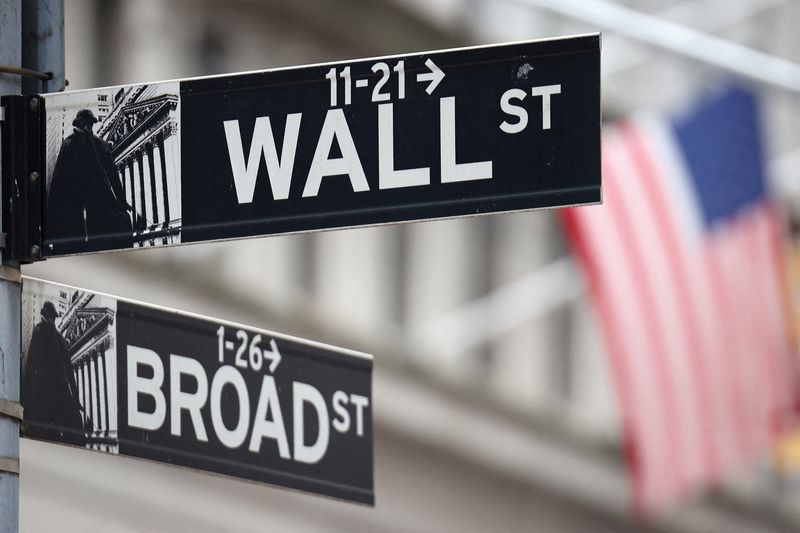By Sruthi Shankar and Johann M Cherian
(Reuters) -U.S. stock index futures rose on Monday as optimism around AI fueled advances in technology companies, and a report suggested the incoming Trump administration could adopt a less aggressive stance on tariffs than previously anticipated.
At 07:55 a.m. ET, Dow E-minis were up 165 points, or 0.38%, S&P 500 E-minis were up 46.25 points, or 0.77%, and Nasdaq 100 E-minis were up 221.5 points, or 1.03%.
Automakers rose, with Ford (NYSE:F) up 2.8% and General Motors (NYSE:GM) gaining 3.3% in premarket trading after a report said the incoming government of U.S. President-elect Donald Trump is currently focused on imposing universal tariffs, but only on certain sectors deemed critical to national or economic security.
Automobile manufacturers are considered the most vulnerable to tariffs imposed on trade partners of the U.S., given their vast supply chains.
In the lead-up to Trump’s inauguration on Jan. 20, investors are seeking insights into his policies, which are broadly seen as beneficial for Corporate America as well as the U.S. economy. Futures tracking the small-cap Russell 2000 index rose more than 1%.
“The concept of tariffs can either be done with a broad brush, which had been talked about a bit in the campaign trail, or they can be applied more targeted to protect critical industries in the United States. It appears the narrative of the latter seems to be moving forward, and that’s something the market would celebrate,” said Art Hogan, chief market strategist at B. Riley Wealth.
Meanwhile, tech stocks looked set to extend Friday’s surge, with chipmakers getting a boost from Microsoft (NASDAQ:MSFT)’s plan to invest $80 billion to develop artificial-intelligence-enabled data centers, as well as Foxconn (SS:601138)’s forecast-beating fourth-quarter revenue.
Shares of Nvidia (NASDAQ:NVDA) gained 2.6%, Advanced Micro Devices (NASDAQ:AMD) added 2.8% and Micron Technology (NASDAQ:MU) climbed 4.9%.
U.S. stocks rebounded sharply on Friday after a string of losses in December and the first few sessions of the new year, when concerns about high valuations, rising Treasury yields and thin liquidity saw traders pull back after a strong 2024 run.
In a week packed with economic data and speeches from U.S. Federal Reserve officials, investors will look for clues on the pace of monetary policy easing this year.
The focus will be on Friday’s monthly payrolls data, which is expected to show U.S. job growth slowed in December compared with the previous month, while the unemployment rate held steady at 4.2%.
While Trump’s proposals – which include cutting corporate taxes, easing regulations and imposing tariffs – could boost corporate profits and energize the economy, they also run the risk of placing upward pressure on inflation.
Policymakers cautioned over the weekend that inflation risks remain in the new year, aiding market expectations that the U.S. central bank will lower borrowing costs for the first time in 2025 in May.
Markets will assess remarks from Federal Reserve Board Governor Lisa Cook later in the day, along with a survey on December services activity.
Among other stocks, Lyft (NASDAQ:LYFT) rose about 4% after Benchmark upgraded the ride-hailing firm’s stock to “buy” from “hold”, while Citigroup (NYSE:C) added 2% after a bullish rating from Barclays (LON:BARC).
Markets will be shut on Thursday, Jan. 9, on account of a national day of mourning to mark the death of former President Jimmy Carter.

